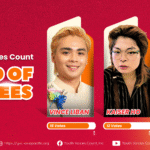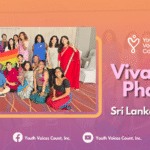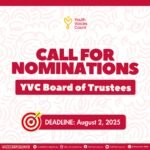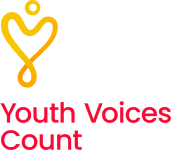Kumam Davidson is a 30-year-old indigenous activist, researcher, artist, and curator from Manipur, India. He studied literature from Delhi and Jawaharlal Nehru University, continuously using the skills he gained from both his academic and advocacy experience.
One of Kumam’s more notable advocacy-related endeavors was co-founding The Chinky Homo Project. The Chinky Homo Project seeks to explore, discuss, and document the lived experiences and narratives of the LGBTIQ community in India.

As the global pandemic progressed, Kumam has started a digital narrative series through the Chinky Homo Project called “the pandemic series” exploring LGBTIQ narratives from Northeast India told through words, photos, sketches, paintings and many other expressions. The stories cut across intersectional margins of gender, race, sexuality, religion, class, and ethnicity. The series strives to be diverse in their storytelling and unravel not just the ways in which the pandemic has impacted LGBTIQ lives but also how they are thriving in the face of this adversity.
Read more of the Pandemic Series: Archiving LGBTQIA lives of India’s northeast during Covid 19 here:
Kumam’s work has gained him recognition and opportunities such as being awarded SAATHII LGBTQIA Fellow, Zubaan Sasakawa Peace Foundation Fellow and Mann Mela Mental Health Design Resident Artist.
Aside from this project he is very passionate about, research, academic writing and community outreach. Kumam is also a writer. His work will be published in “Zubaan’s Homebound Anthology” and “Routledge’s COVID 19 Assemblages: Queer and Feminist Ethnographies from South Asia”. He has a chapter specifically talking about a person living with HIV and documenting a comparative story about what happened in the nineties at the early phase of the HIV epidemic and what is happening today with COVID-19. This narrative study is framed through the eyes of a person who has now lived through both experiences, providing a “then and now” comparison.
To address the difficulties that the marginalized communities are facing, he has also been involved in mobilizing COVID-19 relief efforts for the LGBTIQ communities such as food, accommodation, jobs, financial aid and mental health support. As it is paramount to take into account the mental health of queer people, he has started to work with an organization in Manipur called the Collective Trust, a platform that raises awarness of various mental health issues such as suicide prevention and counseling. Working with Kumam, the collective is now having discussions on expanding their work by creating a strong team of health professionals, lawyers, doctors and law enforcers to deal with crisis and emergency situations.
He also mentions some of the difficulties he faced during the lockdown especially having to limit traveling to work and other responsibilities requiring appointments to be given with sufficient time in advance because of scarce transportation. With irregular announcements on the lockdown status, citizens are also forced to adjust their plans and stock up on necessary items making the situation more arduous. He also expressed that it was very difficult to access curfew passes, a required document when travelling beyond designated times, as it took long waiting times.
The Chinky Homo Project also shares some visual art and sketch pieces from community members from India:
There are several barriers and challenges that Kumam has faced in his work but continues to improve his advocacy work. Speaking about some significant moments in his work, he realized that people where he lived were more concerned about their livelihood than the pandemic itself. Many community members did not have the privilege and luxury to confine themselves at home and protect themselves from the pandemic. The other major thing that he realized was about the challenges people living with HIV are facing, including having to travel far to other areas to get ARV medication because they usually do not visit centers in their district for fear of disclosure or stigma from people they know.
Similarly, with most advocacy-related work now moving to virtual spaces, he conveyed that working online has made it easier for him to diversify and include communities in his work, recognizing also the limitation of virtual engagements versus groundwork. Kumam also identified some difficulties that the community was facing including challenges on digital literacy and access to devices. Kumam was able to identify some of the difficulties that his community was facing with some grappling with understanding technology and being tech savvy. As Kumam mentions, “A lot of people don’t even have smartphones and which is precisely the challenge”. Moreover, he also expressed that even the people who do have access to smartphones might not have internet or have the technical knowledge and skills in using digital tools and platforms in working or studying online.
Kumam sees his “new normal” as being an offset of an already challenging “normal”. As he puts it, the “new normal” is merely “a small tweak from the earlier normal” alluding to the lack of adequate transport, schools hardly having online platforms to support distant education, and a lack of adapted healthcare services that provide online service provision. Furthermore, he feels that there is a need for local facilitators and leaders to recognize the unique needs of the community, to address them so as to make sure no communities are left behind and to ensure effective and sustainable engagement.
Read another one of The Chinky Homo Project’s stories here:
Kumam’s work and that of the Chinky Homo Project teaches us about innovative and creative ways of community engagement that capitalize on storytelling and the arts to convey positive messaging and social consciousness. In the human rights and sexual health response, this is a crucial communication method to create social change in communities. Kumam’s work in research and creative writing, provides fresh narrative voices to develop awareness of the queer experience in India and beyond.







